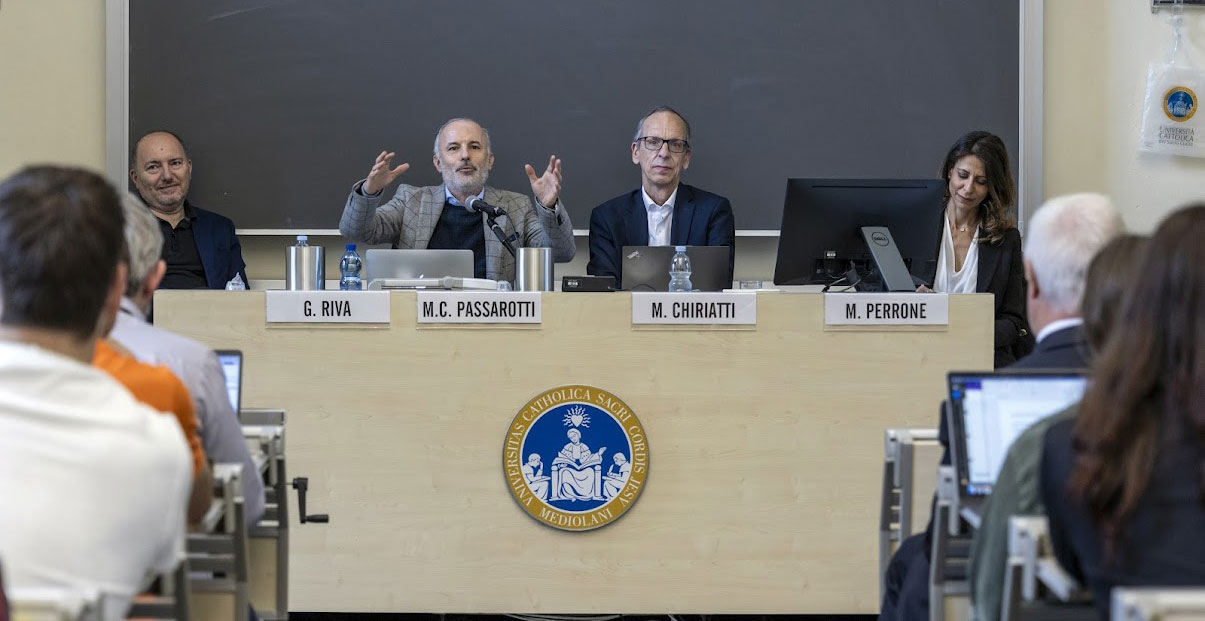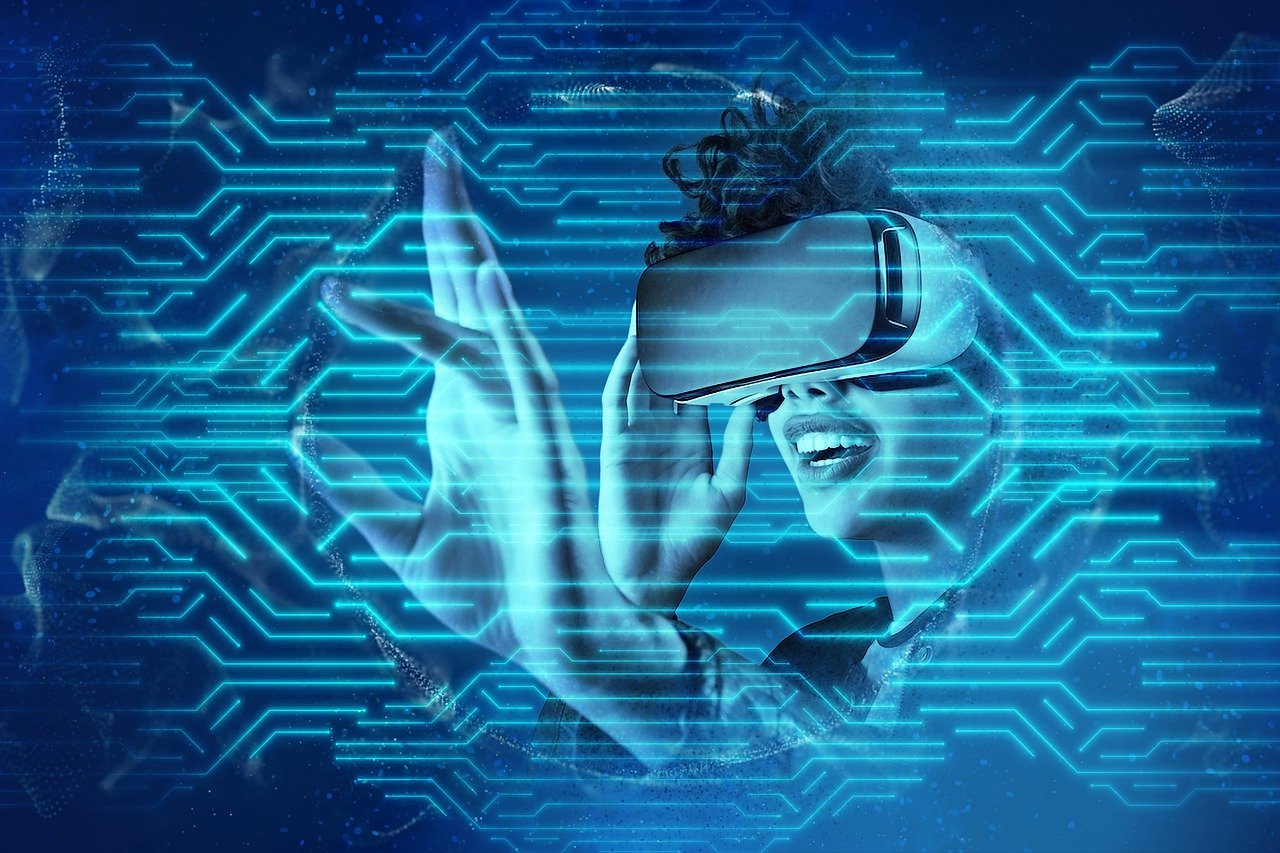
Artificial Intelligence in Companies: When Is It Worth Using?

An article by Francesco Berlucchi
In Plato's Phaedrus, Theuth, an Egyptian deity, presents his latest invention, writing, to the king of Egypt, advising him to spread it among his people because "it will make the Egyptians wiser and more capable of remembering." The king responds that the discovery of writing will have a disastrous effect, causing "forgetfulness in the souls of those who learn it" because, as Plato writes, people will "accustom themselves to remembering" only through writing. Marco Passarotti, director of the Interdisciplinary Research Center for the Computerization of Signs of Expression (Circse) and coordinator of the Master's program in Linguistic Computing, chooses the Myth of Theuth to explain to the many students who attended the event "How Analyzing Natural Language with AI Can Improve Decisions in Companies" that, after all, "the fear of automation has always been there."
"When there is a curve, you either go straight or you turn," explains Passarotti during the second event of the series "Humane Intelligence: Transforming Artificial Intelligence into Positive Technology." The event was promoted by the Humane Technology Lab (HTLab) of the Università Cattolica, the Laboratory directed by Giuseppe Riva that explores the relationship between human experience and technology, and was moderated by Manuela Perrone, a journalist for Il Sole 24 Ore (read the article on ilsole24ore.com). "Artificial intelligence has learned what it knows based on the data it was trained with," continues Passarotti. And he asks: "If artificial intelligence is based on an experience quantitatively unreachable by a human being, and if the distinguishing feature of a good company leader is precisely experience, what is the role of the corporate manager? And what is the human factor that distinguishes it from artificial intelligence?"
The answer, according to Passarotti, lies in the fact that artificial intelligence possesses "knowledge," understood as the set of "significant correlations between information." This is "the great novelty" of the new technology which, unlike previous ones, does not stop at possessing "information" but goes beyond. It is "wisdom," on the other hand, that remains a peculiar characteristic of humans. Humans can "understand knowledge," "know how to apply it," and "know how to do the right thing at the right time." Then there is "creativity": a good corporate manager is "someone who knows how to make creative decisions," explains Passarotti. "Even artificial intelligence is partly creative because it sees correlations in data that we do not see." Yet, according to the director of Circse, the American linguist Emily Bender is right when she calls ChatGPT "a stochastic parrot, a machine that analogically repeats what it has learned from the data." Because "the correlations the machine sees are found in the data; it cannot create new and creative correlations."
Data, after all, is the new oil. Giuseppe Riva, director of HTLab, reminds us of this with his usual concreteness, citing research published in the scientific journal Proceedings of the National Academy of Sciences (PNAS) which states that "knowing just a hundred likes entered on a social network by a person is enough to have a predictive capacity of their psychology superior to that of a partner." This theme was explored in the context of "Electoral Campaigns in the Age of Artificial Intelligence" during the first event of this series of meetings. Yet, Riva continues, "if artificial intelligence possesses knowledge, wisdom lies in understanding. Knowledge is the ability to answer all questions. While understanding lies in the ability to ask the right questions and find the answers to these questions. This is what makes man wise, and it is still an exclusively human capacity."
"All this data, which we often talk about, has so far been used by artificial intelligence to make predictions," explains Massimo Chiriatti, Chief Technology and Innovation Officer for the Infrastructure Solutions Group of Lenovo in Italy and lecturer in Artificial Intelligence and Natural Language Processing for Decision Making in the Linguistic Computing degree program. "Today, the machine generates textual, video, audio content, and computer codes. Imagine a pen that is not passive but continues autonomously generating content. It does this based on what we have done in the past." For this reason, the ideal condition for its use in work contexts arises "when a company has a lot of data and seeks to use it best." The machine "does not decide, cannot properly link cause and effect," and especially "does not have intention." Therefore, there is no need to fear.
"The jobs that are disappearing are the repetitive ones," Chiriatti continues. But the prototypical example, perhaps, is translations. "Previously, to translate, programs were written with many rules, but exceptions upon exceptions were introduced. At a certain point, the paradigm changed: machines were given many texts, not rules. In this way, based on statistical connections, translations have greatly improved compared to ten years ago." And that same technology has not supplanted humans; it has complemented them. "Today, translators who use AI can improve their income because they produce faster and with higher quality." In summary, Chiriatti argues, "technology helps us study more, improve ourselves, delegating the more repetitive tasks to machines."
"We are afraid that artificial intelligence will replace us because we tend to humanize it," concludes Passarotti. "For the first time in history, there is a dissociation between language and thought. We are used to the fact that those who interact with us are human beings. The challenge today is to stop humanizing artificial intelligence and become more human, wiser, and more creative ourselves. Not to suffer from technology and, on the contrary, to use it best even in the corporate environment." The risk will be the widening of the "gap between those who do not know artificial intelligence and will suffer from it, and those who will know how to exploit it." Because they have matured wisdom, "the understanding of knowledge."
The interview is published on Secondo Tempo.
Read more
-
 Premio Nostalgia di Futuro 2023 sezione NewsMedia4Good a Don Luca Peyron
Premio Nostalgia di Futuro 2023 sezione NewsMedia4Good a Don Luca Peyron -
 Come curarsi nel Metaverso?
Come curarsi nel Metaverso? -
 L’Aristotle Prize a Giuseppe Riva
L’Aristotle Prize a Giuseppe Riva